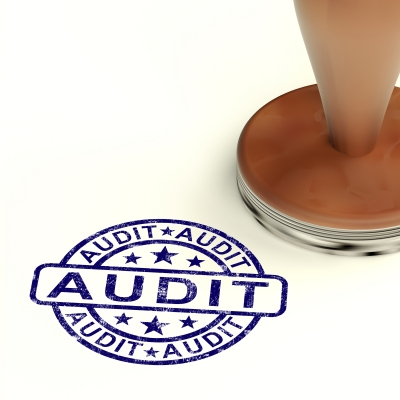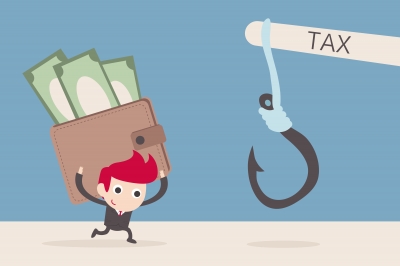Have you missed out on receiving an IRS income tax refund? If so, you might still be able to claim your money form the IRS. This is true, even if you haven't filed a tax return or if you've lost a refund check in the mail. Learning how to check the status of an IRS refund can help you reclaim some of your deserved income tax money.
Tax Refund: Get What's Coming to You
Top Ten Celebrity Tax Problems
It's true that celebrities get paid lots and lots of money but they sometimes get hit with lots and lots of tax penalties when they don't report their income properly. Over the years many famous people have gotten into trouble with the IRS usually over unpaid back taxes. Here are the top ten celebrity tax problems.
Money Saving Tips for Self-Employed Taxpayers
Self-employed taxpayers often face unique income tax challenges when it's time to prepare their returns. The IRS has special rules and regulations that apply to these individuals so it's very important for taxpayers who work for themselves to have their financial affairs in order before they file a return. It's also wise for self-employed citizens to get tax preparation help before attempting to complete forms on their own. Here are a few IRS tax tips for the self-employed.
Eight is Enough: Tips for Choosing Your Filing Status
The IRS provides five different tax statuses for individuals to choose from when preparing their income tax returns. The key to choosing the best tax filing status for you is learning about the rules and regulations that apply to each status. Here are eight tips for picking your tax filing status.
The Dreaded Audit: Who, What, When and Why
IRS tax audits are difficult processes for any taxpayer to endure. Unfortunately, some tax returns tend to get audited more frequently than others. Finding out which types of returns are likely to get audited can help some taxpayers prepare themselves for a possible audit. If your account is one that is flagged for an audit you'll also need to enlist qualified audit representation to assist you during the procedure.
Do Away with Underpayment Penalties: 6 Tips
The IRS assesses underpayment penalties for taxpayers who don't pay in enough income tax during the year. This penalty is typically enforced against those who are self-employed or those who don't have enough tax withheld from their pay to cover their assessed tax. If the IRS imposes an underpayment penalty on your account, you'll have to pay in the additional taxes you owe as well as the penalty. Here are six tips you can use for tax help and to learn how to prevent underpayment penalties.
Pay Off Your Tax Debt with an IRS Payment Plan

If you owe back taxes to the IRS you might be worried about how you'll resolve your account with the agency. The IRS has plenty of resources to track down and penalize potential tax cheats so it's always best to find a way to pay your balance as soon as possible. The good news is that you can pay your back tax bill in an affordable way by using an IRS payment plan. Before you're able to set-up payment plan arrangements though, you'll need to learn the different types of available plans for you.
Kids off to College? Tax Deductions for Empty Nesters
Empty nesters that have recently sent their children to college may be searching for ways to save on their income tax bills. For these taxpayers, the loss of dependent children may also mean the loss of significant tax deductions which can cause their tax bill to rise considerably. Taking advantage of tax savings for empty nesters can help these individuals keep more of their money at tax time.
Wage Garnishment: What the IRS Has to Do Before They Take Your Money
Some taxpayers think that the IRS can garnish wages without warning but the agency actually has several procedural rules that it follows when agents begin the wage garnishment process. By learning about the IRS rules for wage garnishment taxpayers who have outstanding back tax balances can prepare themselves to stop the wage garnishment process and avail themselves of the options they have.
12 Sweet Tax Tips for 2012: Get Them Before They're Gone
Many tax deductions and credits have been extended through 2012. This means that taxpayers may be able to claim some additional credits on their tax returns for 2011. However, there may also be some additional taxes due on specific transactions this year so it's wise for taxpayers to find out about the following 12 tempting tax tips for 2012 in advance.
SUBSCRIBE VIA EMAIL
POSTS BY TOPIC
- Tax Tips and Help (285)
- IRS Collections (121)
- IRS Audit (72)
- Tax Credits and Deductions (70)
- Tax Resolution (62)
- Business Taxes (54)
- Back Taxes (48)
- Wage Garnishment (21)
- Tax Levies (19)
- IRS Payment Plans (15)
- Tax Liens (14)
- Offer in Compromise (9)
- Unfiled Tax Returns (9)
- IRS Tax Attorneys (7)
- Asset Seizure (6)
- Tax Evasion (6)
- Criminal Tax Defense (4)
- Innocent Spouse Relief (4)
- Alimony (1)










